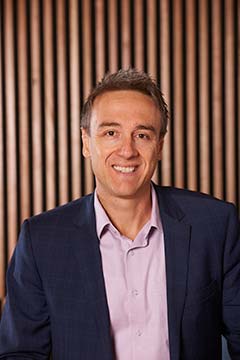The Project’s recent interview between high profile host Waleed Aly and Prime Minister Scott Morrison may have made great television viewing, but it also raised a volatile question:
Does objective journalism really exist? Or are we now facing a culture-driven media gridlock based on ideologies?
In factual terms, Channel 10 presented an international news story, chaired by a Logie award-winning presenter and featuring Prime Minister Morrison.
But some view it as purely sensationalist television, a rating ploy.
The point is debatable – but there’s no doubt that bringing a national leader renowned for some of Australia’s most stringent immigration regimes together with a high profile Muslim journalist on a subject of horrific bloodshed and terror plus an allusion to institutionalized Australian Islamophobia, created fireworks.
But what makes Aly and his interviewing style any different to other big-name media personalities? Columnist Andrew Bolt makes his politics clear; ABC talkback radio veteran Jon Faine is renowned for playing Devil’s advocate and contrarian to each and every guest; Walkley Award Winning journalist Sarah Ferguson has a highly forensic style.
It begs the question: is there such thing as a fair interview? Maybe not. The circumstances can be challenging for any interviewee: sitting under hot lights, not knowing what question will be asked next.
Add to this the fact that journalists pride themselves on holding politicians to account – and rightly so, given the power and influence MPs wield, sometimes irresponsibly – and it’s no surprise Waleed held the PM to account.
But did he do it in the spirit of a contest of ideas objectively examining an issue? Or did he conduct the interview with the bias of someone personally and deeply aggrieved by a terrifying event?
Bias is an inherently human trait. So perhaps the real question is, why should we expect a journalist be any different?
This interview has become just another episode in the identity war being waged between political classes – a war where there will be no winner.
For Waleed or anyone on the political left to conduct the interview without emotion or bias against a conservative government that has supported One Nation and benefited electorally from a fear of Islam would be almost impossible.
If Waleed had wanted the audience to believe he was conducting a fair two-way interview, he could have used simple listening body language like nodding his head, and neutral facial expressions. Instead, he was steely faced for most of the interview, making little effort to conceal his contempt for Morrison and his government.
That said, Waleed’s line of questioning was tough but fair and suitable for the live headline act that it was. And in response, Morrison did his best to project the image of someone having an open dialogue. His answers were expansive in a bid to deflect – although not likely to win over the Liberal haters – and in contrast to Waleed, his body language was clearly tempered. As an assertive man who can be aggressive where necessary, the Prime Minister’s reclining pose and open-neck shirt were obviously a bid to visually water down the tendency.
Overall it appears that in this latest faceoff, the cultural warriors have appealed to their respective bases, but not achieved much else. It remains to be seen whether the furor that ensued post-interview will provoke any attitudinal change from the media or the community expectations of journalistic impartiality.

Tony Nicholls
Founder and Director of Good Talent Media


Recent Comments